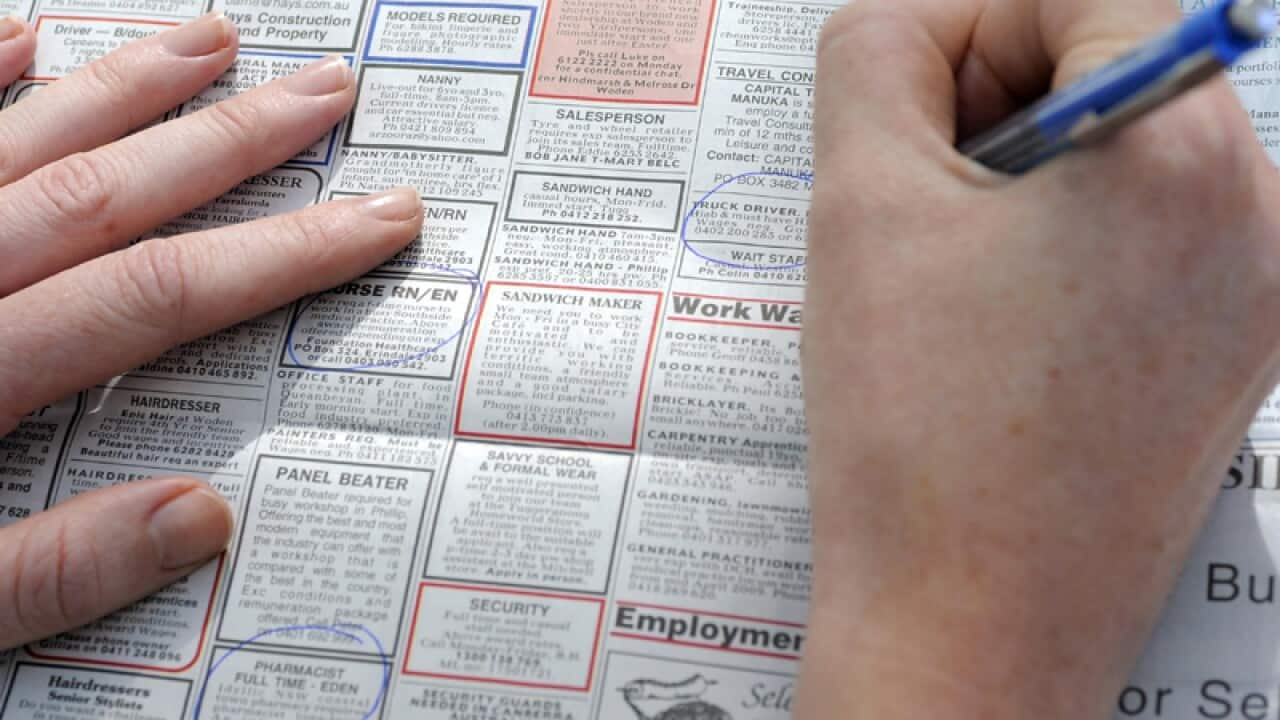A stubbornly-high jobless rate and the potential for widespread mortgage rate increases are a reality check for the Turnbull government after riding the crest of the wave of popularity in the past month.
But Employment Minister Michaelia Cash insists there is underlying strength in the economy despite the jobless rate remaining close to a 13-year high.
Although total employment fell by 5100 in September, Senator Cash said 160,300 jobs had been created in the past nine months.
But she conceded that at 6.2 per cent, the jobless rate "remains too high".
Revised figures now show unemployment hit a peak of 6.4 per cent in July rather than 6.3 per cent, its highest level since August 2002.
Opposition employment spokesman Brendan O'Connor said if it wasn't for the number of people looking for work falling in the month the jobless rate would have risen again.
"We have full-time jobs disappearing from the labour market," he told reporters referring to a near-14,000 drop in full-time workers in September.
But Senator Cash hit back, saying if he was really "dinkum" about job creation, Labor would support the China free trade agreement.
"Increased trade equals increased jobs," she said.
However, ANZ economist Justin Fabo warned the jobless rate could stay around six per cent for an extended period faced with the soft domestic and global economic backdrops.
Against this outlook, politicians from all sides have condemned Westpac's decision to slug borrowers with a mortgage rate increase, raising concerns that other banks will follow suit.
Opposition Leader Bill Shorten described the nation's second largest bank's move to lift its standard variable rate by 0.20 percentage points as "corporate greed".
Westpac argues the increase will help cover the cost of new capital requirements.
But Treasurer Scott Morrison said the rise was "in excess" of what he had been advised would be sufficient to meet new capital requirements set out by the Australian Prudential Regulation Authority and accused the bank of gouging its customers.
Labor finance spokesman Tony Burke said the big banks always seemed to grab the opportunity to lift rates when there was "half an excuse".

